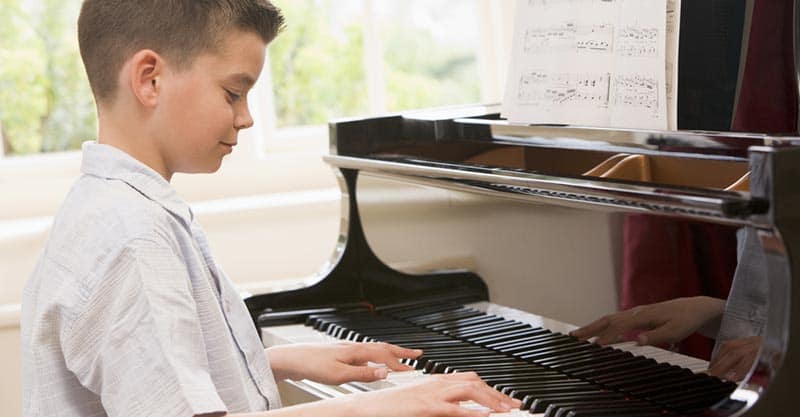
Learning to play the piano can be a fulfilling and rewarding experience at any age. Whether you’re a young child just starting out or a retiree looking for a new hobby, there are countless benefits to learning the piano. In this article, we’ll explore some of the key benefits of learning piano at any age and why it’s never too late to start.
- Boosts brain function
Studies have shown that learning to play the piano can boost brain function in a variety of ways. Playing the piano can improve memory, cognitive skills, and spatial-temporal skills, which are crucial for problem-solving and reasoning. Learning to play the piano can also increase neural connections in the brain, which can improve overall brain function and reduce the risk of cognitive decline.
2. Improves physical dexterity
Playing the piano requires precise hand movements and coordination, which can improve physical dexterity. Regular practice can strengthen hand muscles and improve finger agility, which can translate into improved fine motor skills in other areas of life. Piano playing can also improve hand-eye coordination and enhance overall body awareness.
3. Relieves stress and promotes relaxation
Playing the piano can be a great way to relieve stress and promote relaxation. Studies have shown that playing music can lower cortisol levels, a hormone associated with stress, and increase the production of endorphins, which are natural mood boosters. Playing the piano can also provide a meditative and calming experience, which can help reduce anxiety and promote overall well-being.
4. Enhances creativity and self-expression
Playing the piano can enhance creativity and self-expression. Learning to play different pieces and experimenting with musical ideas can inspire creativity and allow for self-expression. Playing the piano can also provide an outlet for emotions and feelings, allowing for a healthy release of pent-up emotions.
5. Builds confidence and self-esteem
Learning to play the piano can build confidence and self-esteem. As you progress and master new skills, you can feel a sense of accomplishment and pride in your abilities. Performing in front of others can also boost confidence and improve public speaking skills. The sense of achievement and recognition can provide a positive impact on overall self-esteem and self-worth.
6. Provides a lifelong hobby
Learning to play the piano can provide a lifelong hobby that can bring joy and fulfillment. The ability to play the piano is a skill that can be enjoyed throughout life, and as you continue to learn and grow, you can discover new pieces and styles to explore. Playing the piano can also provide a social outlet, allowing you to connect with other musicians and music enthusiasts.
7. Can improve overall musical skills
Learning to play the piano can improve overall musical skills. The piano is an excellent foundation for learning music theory, which can be applied to other instruments and genres. Learning to read sheet music and understand music theory can also improve listening skills and enhance appreciation for different styles of music.
In conclusion, learning to play the piano at any age can provide countless benefits. Playing the piano can boost brain function, improve physical dexterity, relieve stress, enhance creativity and self-expression, build confidence and self-esteem, provide a lifelong hobby, and improve overall musical skills. Whether you’re a beginner or an experienced musician, it’s never too late to start learning the piano and enjoy the many benefits that come with it.


